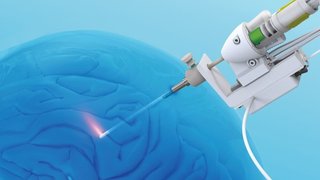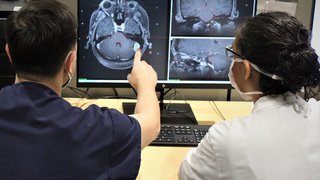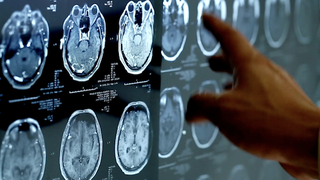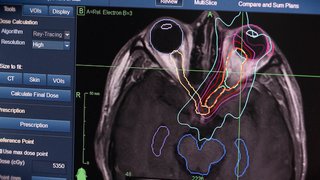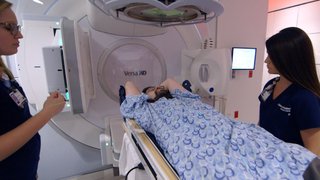The Peter O’Donnell Jr. Brain Institute brings together transformative research and patient-centered care to improve the lives of patients today and those of generations to come.
Brain Tumors
New Patient Appointment or 214-645-8300
MedBlog
Results: 6 Locations
Neuro-Oncology Clinic
at Cancer Care Outpatient Building 6202 Harry Hines Blvd., 7th FloorDallas, Texas 75235 (214) 645-4673 Directions to Neuro-Oncology Clinic at Cancer Care Outpatient Building, Dallas Parking Info for Neuro-Oncology Clinic
James W. Aston Ambulatory Care Center
5303 Harry Hines Blvd.Dallas, Texas 75390 214-645-8300 Directions to James W. Aston Ambulatory Care Center, Dallas Parking Info for James W. Aston Ambulatory Care Center
Simmons Cancer Center
at UT Southwestern Medical Center at Richardson/Plano 3030 Waterview Parkway, 2nd FloorRichardson, Texas 75080 972-669-7077 Directions to Simmons Cancer Center at UT Southwestern Medical Center at Richardson/Plano, Richardson
Simmons Cancer Center
at UT Southwestern Medical Center at RedBird 3450 W. Camp Wisdom RoadDallas, Texas 75237 (214) 645-4673 Directions to Simmons Cancer Center at UT Southwestern Medical Center at RedBird, Dallas Parking Info for Simmons Cancer Center
UT Southwestern Neurosurgery and Spine Center at Texas Health Dallas
at Professional 3 8230 Walnut Hill Lane, Suite 204Dallas, Texas 75231 214-891-6590 Directions to UT Southwestern Neurosurgery and Spine Center at Texas Health Dallas at Professional 3, Dallas Parking Info for UT Southwestern Neurosurgery and Spine Center at Texas Health Dallas












